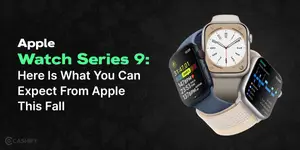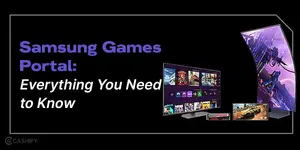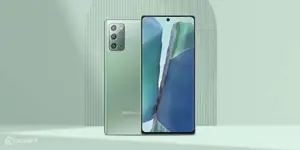Laptops have become extremely common these days and offer a simple mobile computing experience to users. Laptops can be used for watching movies, playing games and other work purposes, almost every modern laptop these days comes with a built-in HDMI port allowing you to mirror the display to a larger screen such as your TV. There are several ways in the laptops these days allowing you to cast your display to modern Smart TV wirelessly.
In this step-by-step guide, we will show you how to connect your laptop to a TV so that you stream Netflix, games, or your vacation photos on the big screen. There are quite a few ways to do it but in this article, we focus on the most commonly used methods. This right method might vary based on the abilities of your TV, ports available on your TV and Laptop, and the content you are streaming.
Also Read: Best Smartphones With Dedicated Gaming Mode To Enhance Your Gaming Experience
Connect Your Laptop To TV Using HDMI Cable:
This is the simplest and easiest way to connect your laptop to a TV, you will need a simple HDMI cable to get the job done, it can be easily purchased online for about Rs 500. HDMI supports both Audio and High-resolution video so it is great for streaming your favourite shows or games. For this solution to work, both your Laptop and your TV need to have an HDMI port. Unless your laptop or your TV is super old, there’s a good chance that both have it on board.
To connect, turn on both the devices and connect them using an HDMI cable and select the correct HDMI input on your TV with the remote to start displaying. These days, smaller laptops have a micro HDMI or a mini HDMI port to save space, so you might need an adaptor or a different cable that can be easily purchased online or in offline stores.
In most cases the connection is established automatically, in case it doesn’t work, go to Settings open the System tab and choose display. Make sure the settings are configured properly so that the resolution will match the resolution of the TV, then press the Windows and P keys to select the “Duplicate” option to mirror the display
Step-by-step Instructions:
- Connect your laptop to the TV with an HDMI cable.
- Turn on the Laptop and the TV.
- Select the correct HDMI input on the TV based on the connection with the remote.
Connect Your Laptop To TV Using VGA Cable
Older laptops and TVs have VGA ports instead of HDMI ports.VGA is older and isn’t as good as HDMI due to the lower resolution and lack of support for audio. In this case, you will need an additional cable for audio.
Turn on your TV and connect it to your laptop via VGA and a 3.5mm audio cable. Now select the PC or RGB option from the list and your mirroring should be successful.
Also Read: How To Connect Your Android Smartphone To MacOS System
Step-by-step instructions:
- Connect both the devices with a VGA cable.
- Connect the laptop to the TV with a 3.5mm audio cable.
- Turn on the Laptop and the TV.
- Select either the PC or RGB input on the TV with the remote
Also Read:
6 Best Cheap Gaming Laptops to Buy in India
Connect your Laptop to TV using USB Type-C
If your laptop is pretty new, then it is likely to have a USB Type-C port. You can connect your laptop directly to the TV If the TV also supports USB Type-C input. In this case, connect both devices with a USB Type-C cable and then select the correct input on the TV. Notably, not all USB Type-C cables support video, so double-check compatibility before buying.
Also Read: Best Productivity Apps For Android And iOS
If your TV doesn’t come with a USB Type-C port, you can still buy a USB-C to HDMI adapter. Now plug in the USB-C cable into your laptop and the HDMI end to the TV. Now turn on the TV and choose the right input method to start displaying your laptop contents on the TV.
Step-by-step instructions:
- If your TV doesn’t support Type-C input, use a USB-C to HDMI adapter.
- Turn on both the devices
- Select the correct input on the TV with the remote, based on the cable you used
Connect laptop wirelessly to the TV
Wireless methods of connecting a laptop to television are gaining popularity as an alternative. Wireless screen mirroring has a plethora of advantages. It enables you to connect to your television wirelessly from a variety of different sources. The best ones can divide your 4K TV into multiple sections, allowing you to view multiple presenters or sources simultaneously.
Consider this if you are a realtor with a home office: one section can be connected to your notebook to display a listing, another to your phone to display the Zillow page, a third to a tablet to display a tour video, and a fourth to your desktop computer to display MLS comps. More importantly, with the proper equipment, you can accomplish this without the assistance of an IT expert.
Also Read:
Maximize Your Work-From-Home Setup With 6 Best Laptop Docking Stations
If you’re looking to sell a phone online or recycle an old phone, Cashify will assist you in getting the procedure finished right at your doorstep.
Connect Your Laptop To TV Wirelessly
If you don’t want to deal with those messy cables, then you might want to connect your laptop to the TV wirelessly. You will need a media streaming device such as a Google Chromecast to get the job done. Most of the modern TV’s come with built-in support for Wireless streaming and Android TV’s come with Chromecast built-in. If your TV supports Miracast or Chromecast built-in, then you will not need any additional hardware to stream wirelessly.
Also Read: Cashify Explains: Breaking The Myths About Megapixels
A Google Chromecast streaming device might sound a little expensive compared to the other options but offers the convenience of wireless streaming. Connect the device to your TV and finish the setup from your smartphone. Once you have everything set up, you can use Chrome to mirror YouTube videos, Chrome Tabs, Videos or files from your local storage or your entire desktop screen.
Open the Chrome browser and click on the menu icon to the top right, here find the cast option and select the content that you want to case. All the content will show up in the Sources drop-down you can choose the right content and click on the Chromecast that you want to mirror the display to.
Step-by-step Instructions:
- Plug the Chromecast into the TV and set it up using your smartphone
- Open the Chrome browser on the laptop and click the menu icon to the upper-right corner
- Choose the content you want to cast via the “Sources” menu
- Select the Chromecast that you want to cast to in case you have multiple setups in the house
















